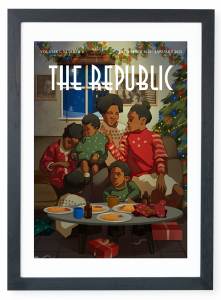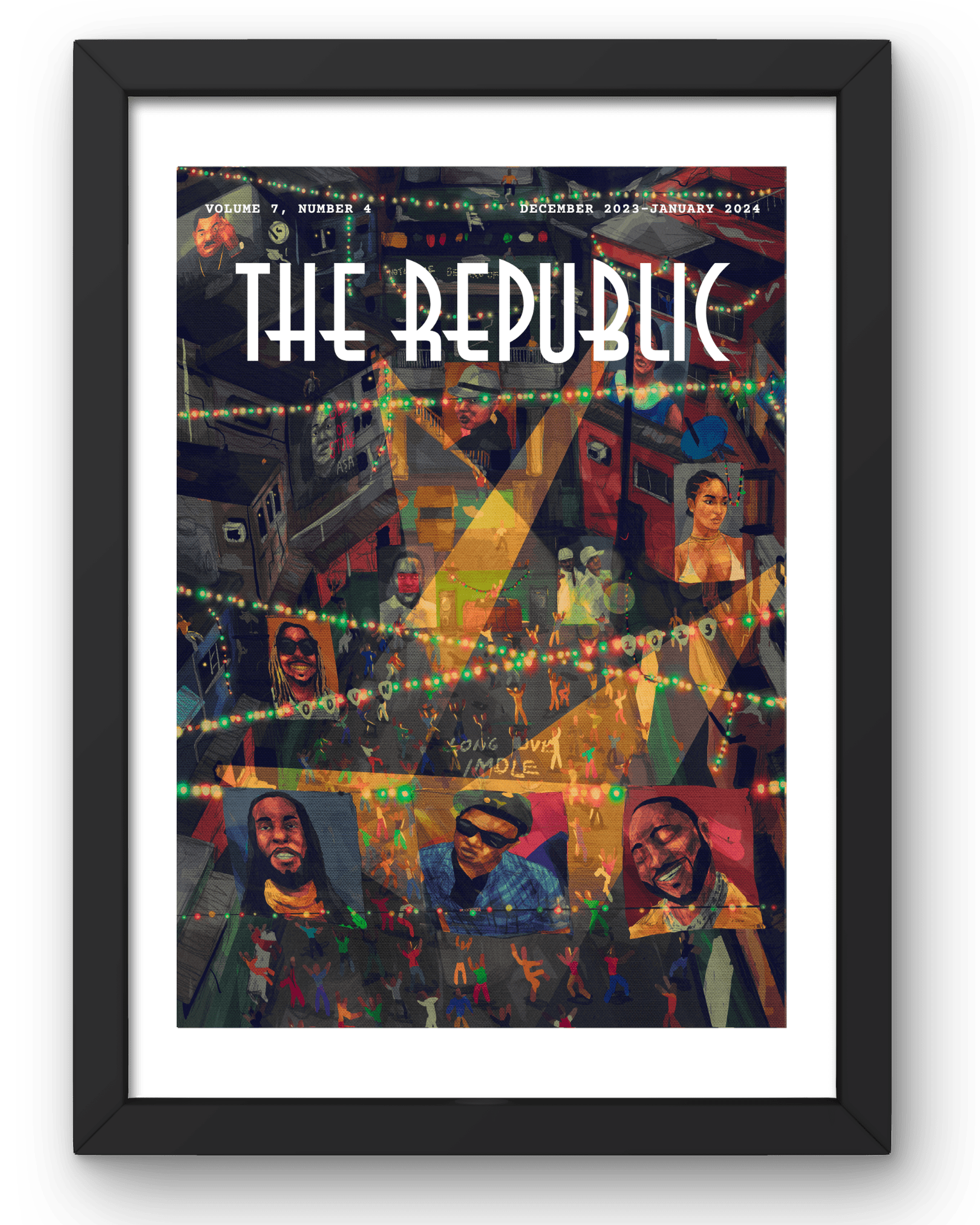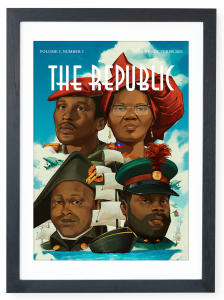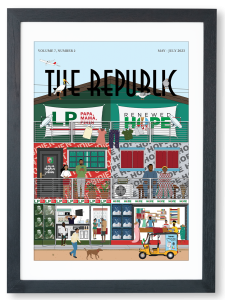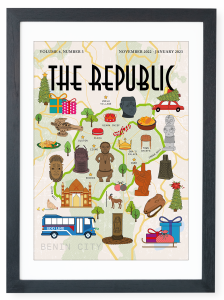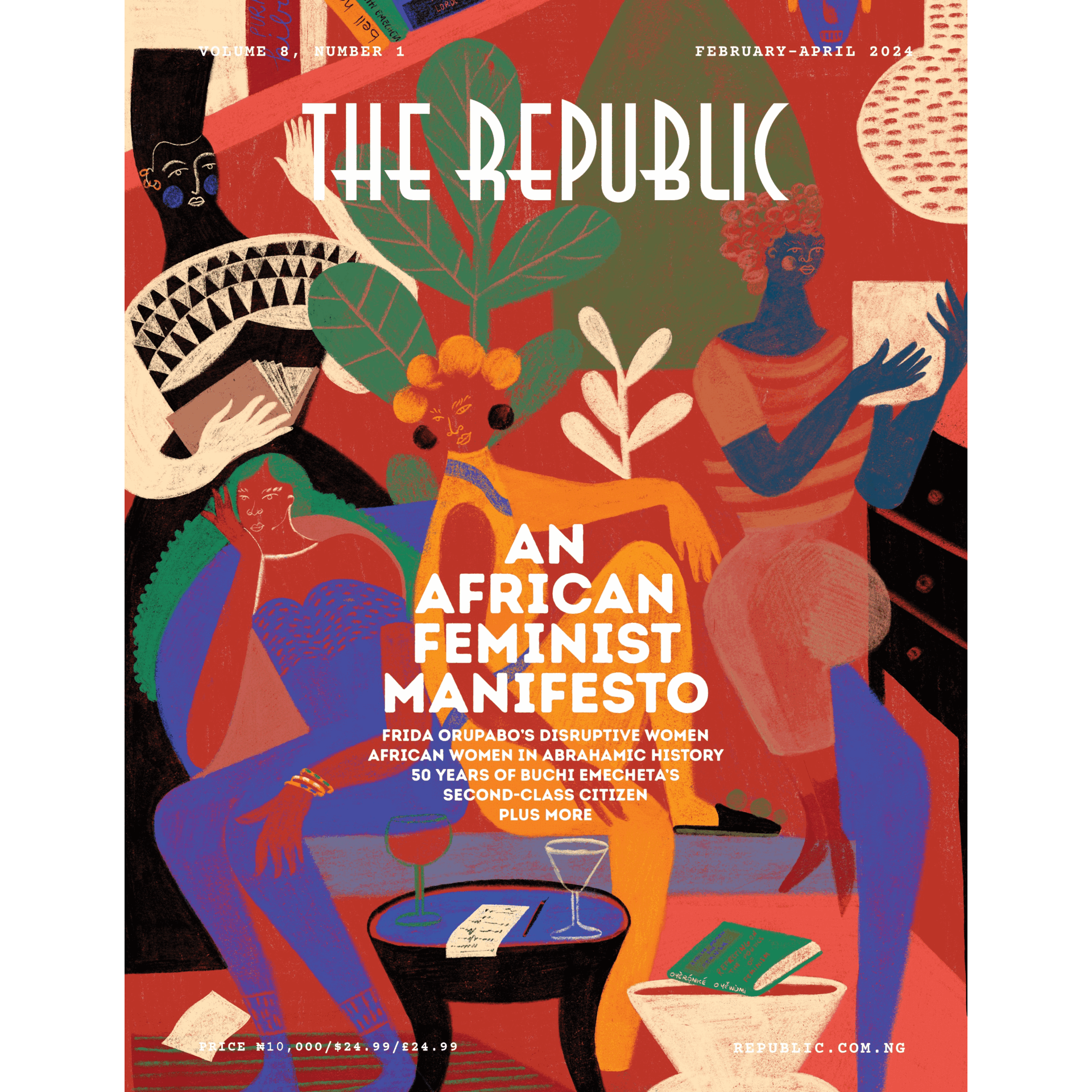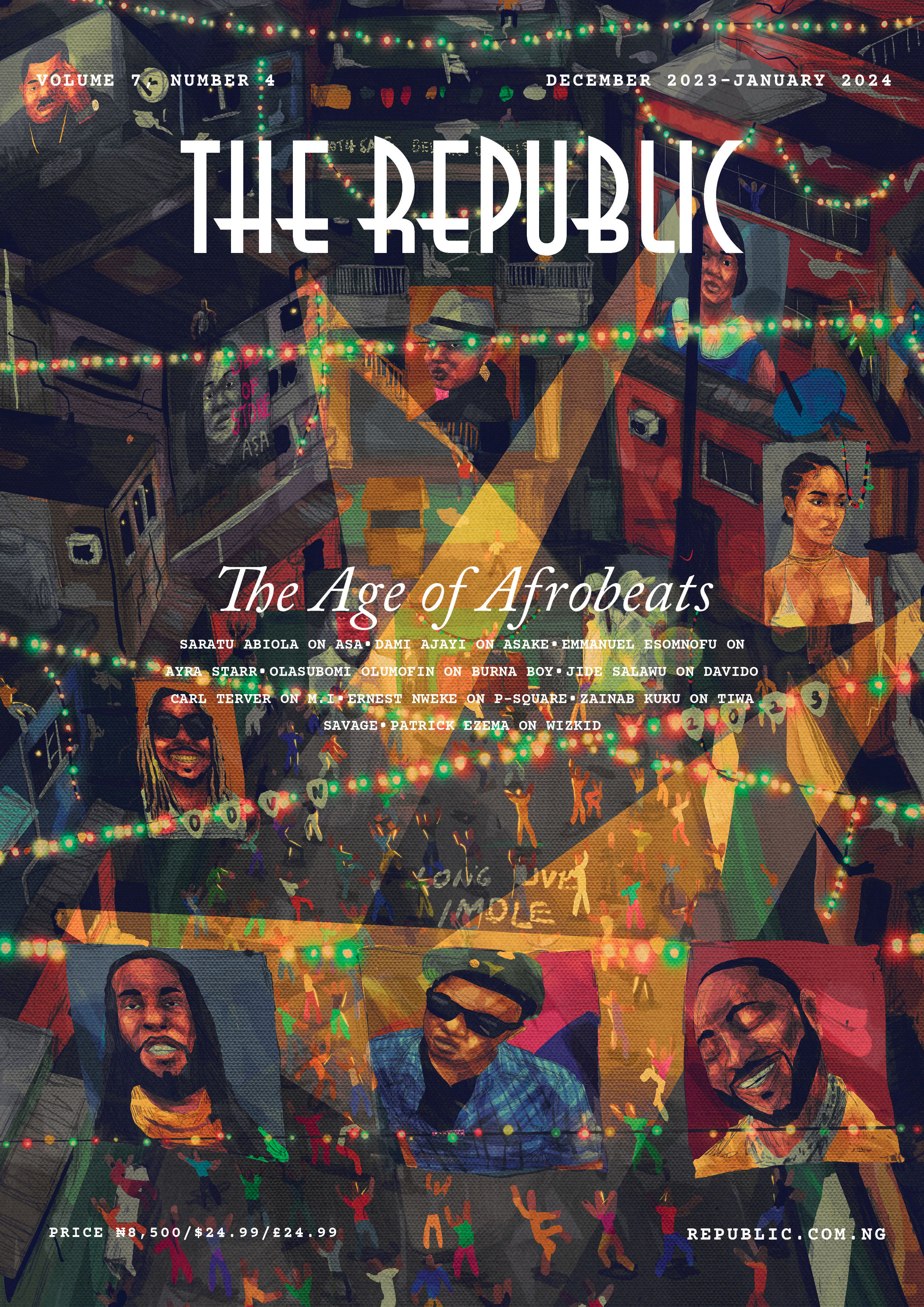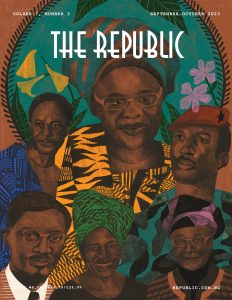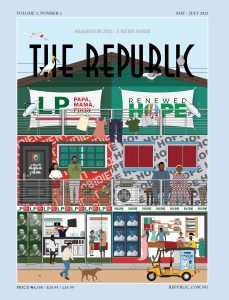THE MINISTRY OF ARTS / BOOKS DEPT.
A Whirlwind of Fractured Sisterhood and Dysfunctional Families
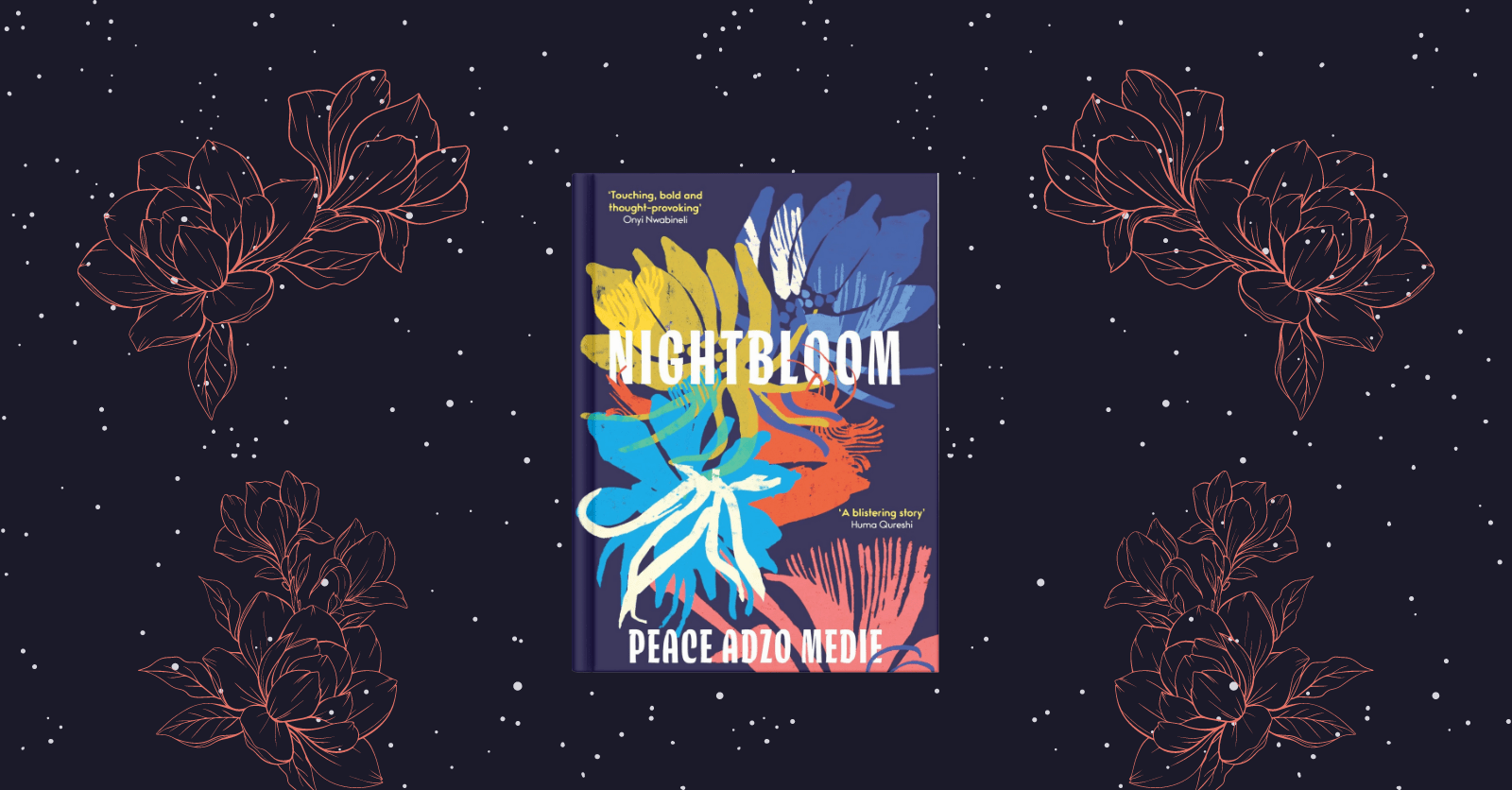
Nightbloom by Peace Adzo Medie. THE REPUBLIC
THE MINISTRY OF ARTS / BOOKS DEPT.
A Whirlwind of Fractured Sisterhood and Dysfunctional Families
If you grew up in West African countries like Ghana, Nigeria, or Senegal, you would understand growing up among extended family members who play a defining role in one’s childhood. This sort of childhood often involves many relatives helping your parents raise you. This help can take many forms; from offering you a wealth of advice (solicited or not) to becoming co-sponsors of your education and upbringing. If you’re lucky, many of them stick around and continue to play active roles in your adulthood. Once you’ve become an adult, the downside to this communal support is the demand for your loyalty to your extended family, even to the detriment of your new immediate family.
Such demand for loyalty causes the family to be at loggerheads; so much so that it can destroy the family. It is a phenomenon we see time and time again, as it is addressed in many African films and books. This is the very issue that caused Yao Lokko’s family to ceaselessly accuse his wife, Lucy, of making sure she and her daughter, Akorfa are ‘the only beneficiaries of [Yao’s] hard work’. The tension between Lucy and her in-laws is so thick that it leads to disputes between herself and her husband, Yao. It doesn’t stop there, the friction between the families goes on to destroy other relationships within the family, including that of Akorfa and her cousin, Selasi. Although Yao, Lucy, Akorfa, and Selasi are fictional characters in Peace Adzo Medie’s sophomore book, Nightbloom, they are emblematic of many African families.
TWO PEAS IN A POD
Set in late eighties Ghana, the story of Akorfa and Selasi starts like any other deep-rooted friendship. The cousin-sisters are inseparable in Ho, a small city in southeast Ghana. They spend their days in Akorfa’s house playing with Barbie dolls, watching episodes of My Little Pony, and eating all the sweets Akorfa’s mom stocks in her home. Akorfa’s quiet, domicile self, paired with Selasi’s outspoken and witty persona, produces an imbalanced but functional relationship that isn’t uncommon in childhood friendships. Their paradise in Ho suddenly vanishes when Selasi is forced to move away from their estate to her grandmother’s house and Akorfa’s family relocates to Accra.
A few years later, Selasi and Akorfa are reunited as they begin secondary school at St. Theresa. Teenage antics, miscommunication, buried feelings and time soon wear away their friendship and it doesn’t take long for them to rid themselves of one another. Akorfa goes to America to pursue her dream of becoming a doctor and Selasi stays in Ghana to make something of herself. The troubles of life force Akorfa and Selasi back together and the opportunity to fix their relationship arises.
shop the republic
COMPLICATED FAMILY DYNAMICS AND WOMANHOOD
Nightbloom is first told from the point of view of Akorfa, then Selasi, and finally, a ubiquitous narrator, taking us through their lives from an individual perspective before withdrawing to an objective lens. This writing style reveals how the two characters present their narratives with self-serving spins. We also understand the reason behind the discrepancies in their narration and for muted or exaggerated reactions to certain circumstances. For instance, Akorfa’s narrative of Selasi’s heated fight with Lucy is merely half a page long with Lucy’s dialogue minimal, empathetic and primarily directed at Yao instead of Selasi, reaffirming Akorfa’s perception of Selasi as irrational. Meanwhile, Selasi’s retelling of the same heated fight revealed Akorfa seated at the dining table, removed from the confrontation, and is a page and a half long with extensive dialogue from the characters involved; Lucy, Selasi and Yao. Selasi’s narration reflects the emotional weight of the scene and paints a clearer picture of the emotional and verbal abuse that transpired. This narrative choice demonstrates the complexities of navigating family issues, reinforcing that things are never as they seem, especially when it comes to family.
This delicately woven story about sisterhood, familial relationships and trauma is a gripping, yet honest reflection of many families. The main characters—Akorfa, Lucy, and Selasi—are fitting reflections of a number of West African women. Importantly, the development of each character is incredible. Through dialogue, character mannerisms, and lifestyle, Medie captures the similar but dynamic core of many African parents. When Akorfa switched from studying medicine to political science later in her academic journey, her mother’s response echoes my father’s comments on deliberating career paths outside of law, medicine, or lucrative corporate alternatives: ‘We didn’t send you there to study politics, or poverty, or whatever. You could have done that here. There are enough poor people in Ghana for you to study. We sent you to America to become a doctor, a neurosurgeon.’
shop the republic
Akorfa and Selasi’s upbringing mirrors two sides of growing up in West Africa. Their stories claw at the nostalgia and mundanity of being a young girl in Ghana. Medie’s reimaging of the frivolities of adolescence and the antics of life in boarding school through the main characters establishes a familiar grounding for her female readers. As a Nigerian born and raised in Nigeria, I relate to the intricacies of Akorfa and Selasi’s sisterhood, the existing class disparity, and their approach to mending their relationship. Hence, why Medie’s Nightbloom is a wholesome book that holds up an unblemished mirror to our attitudes towards family, good and bad.
While the story dominantly focuses on familial issues, including the toxicity of family loyalty and its egocentricity, Medie doesn’t pass on the opportunity to address larger socio-political problems in Ghana. Through relevant supporting characters like Obed, the special assistant to the president, and Minster McCarthy, Medie documents the many ways in which politicians abuse their power and resources. In this novel, Medie—like her predecessors and contemporaries such as Buchi Emecheta, Bisi Adjapon, and Chimamanda Adichie—brilliantly uses complicated family dynamics and womanhood to speak to larger societal issues. Despite the page-turning plot twists and emotional turns, she doesn’t lose sight of her message⎈




